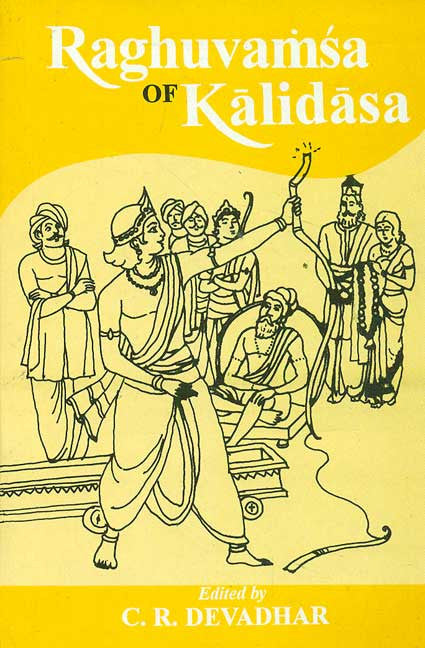Raghuvamsa of Kalidasa (Davadhar): Edited with Critical Introduction, English Translation and Notes
![]() 100% Genuine New Books
100% Genuine New Books
![]() Fast Shipping with Tracking Number
Fast Shipping with Tracking Number
Secure Payments via UPI, Cards & Wallets
![]() Trusted Support & Easy Returns
Trusted Support & Easy Returns
Raghuvamsa of Kalidasa (Davadhar): Edited with Critical Introduction, English Translation and Notes - Paperback is backordered and will ship as soon as it is back in stock.
ISBN : 9788120800151, 812080015
Year of Publication : 2015
Edition : Latest Reprint
No. of Pages : 755
Language : Sanskrit & English
Condition : New
Publisher: Motilal Banarsidass Publishing House
Free shipping on orders over Rs. 249
Free shipping on orders over Rs. 249
We offer free shipping on orders above Rs. 249 in India. For orders below this threshold, a nominal shipping fee may apply, which will be clearly indicated during the checkout process.
How long will it take to receive my order?
How long will it take to receive my order?
The delivery time varies depending on your location. Generally, orders are processed and shipped within 1-3 business days. Once shipped, you can track and expect your order to arrive within 3-7 business days (the duration may vary depending on your location). For more information, please refer to our shipping policy.
Chat with a Real Person
Chat with a Real Person
WhatsApp chat is dedicated to assisting with after-sales queries regarding delivery, returns, and payments. Click below to initiate chat with us on WhatsApp:
[Bookstaa WhatsApp Chat].
For all other inquiries, please visit our customer support page or email us at support@bookstaa.com.
Couldn't load pickup availability
Description
Description
The Raghuvamsa sings of the great solar race of Iksvaku in which Visnu was pleased to become
incarnate as Rama, that he might destroy the demon Ravana and free the gods and men from his tyranny. This supremacy he had won through the favour of Brahman whom he had won over by his austerities. When, therefore, his yoke had become too hard to bear, when the gods themselves were enslaved or banished, they went to Visnu and sought his help. This the God readily agreed to do by becoming incarnate as Rama, DasarathaÍs son; for the overweening demon, when he prayed to Brahman to be made invulnerable, had omitted to secure himself against mere human foes.
This story of the Ramayana forms the central theme of our poem. The first nine cantos trace the fortunes of RamaÍs four immediate predecessors, cantos X to XV the story of Rama himself, his wonderful birth, his noble youth and manhood, his marriage with Sita, the latterÍs abduction by Ravana, RamaÍs victory over Ravana and his happy reign, and the touching narrative of the bandon- ment of Sita upto the very end as we have it in the Ramayana; and cantos XVI to XIX carry on the
tale of the kings who came after Rama to a sad decline in Agnivarna, "a worthless libertine whose excesses had the merit of hastening his death." His widowed queen who was pregnant ascends the throne as regent in behalf of her unborn son, and the poem as we have it abruptly ends on this note of hope.
About the Publisher

Motilal Banarsidass Publishing House (MLBD)
Motilal Banarsidass Publishing House, popularly known as MLBD, is one of the oldest and most prestigious publishing houses in India, established in 1903.
With over a century of legacy, MLBD has been at the forefront of publishing scholarly works in the fields of Indology, Sanskrit, philosophy, religion, spirituality, yoga, Buddhism, and Jainism.
Renowned for its authenticity and academic rigour, MLBD's books are trusted by researchers, scholars, and readers across the globe.
With more than 5,000 titles in circulation, MLBD continues to uphold its commitment to preserving and promoting India’s rich cultural and philosophical heritage.
Bookstaa is an authorized distributor of MLBD books, ensuring 100% genuine and original publications for our readers.

